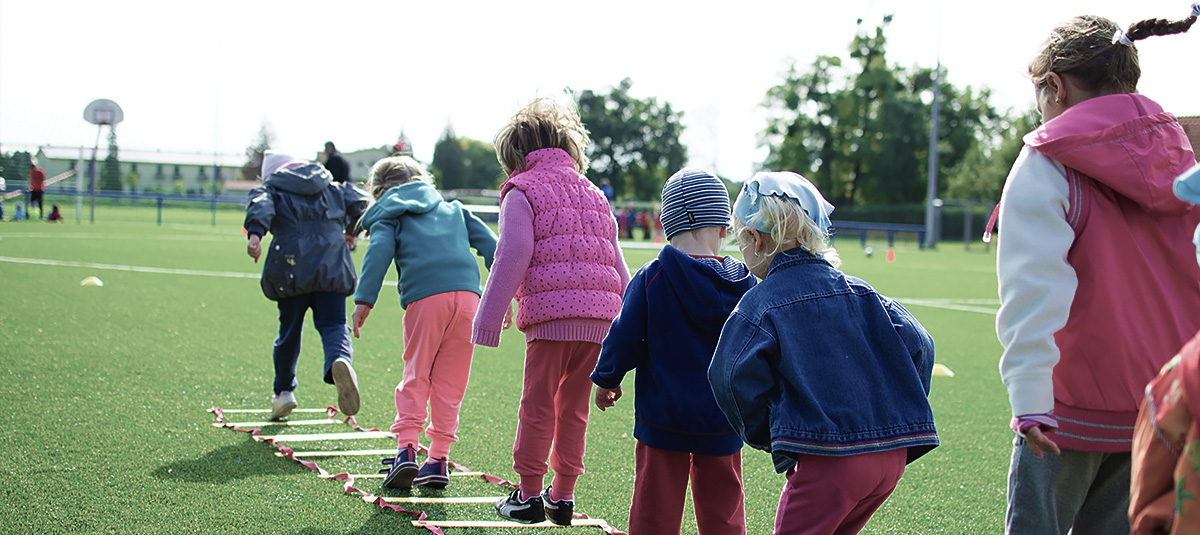Professor of Social Work Paul Bywaters will lead the proceedings of The Work and Pensions Committee Inquiry into child poverty at 9.30am on 14 April
CHILD poverty in the UK is a growing issue affecting more than 4 million children and can have negative consequences for children's well-being and future life prospects, such as employment and earnings.
This was just one of the alarming statistics reported by the Office for National Statistics in February 2020, before the impact of the coronavirus pandemic began to be felt. The Work and Pensions Committee have launched a public investigation into children in poverty and now, a University of Huddersfield Professor has been invited to give evidence and will lead the proceedings of the parliamentary inquiry which is being televised on the morning of 14 April at 9.30am.
Professor of Social Work Paul Bywaters is a member of the University’s Centre for Applied Childhood, Youth and Family Research within the School of Human and Health Sciences and will be talking about the report he submitted with Dr Ruth Allen, CEO of the British Association of Social Workers alongside 14 leading social work experts in which they address the relationship between child poverty and child abuse and neglect.
As part of the nationwide call for evidence, the Work and Pensions Committee said they wanted to gain an understanding of the real impact of child poverty and how it can best be measured and also, what links can be established for children between financial hardship, educational under-achievement, family breakdown and worklessness.
In the report the experts deliver two recommendations. The first is that child abuse and neglect should be recognised as an outcome of child poverty of equivalent significance for policy making as addressing the impacts of poverty on education and health.
The second is the Department of Work and Pensions and the Department for Education need to urgently determine how to fill the gap in data about the socio-economic circumstances of families in contact with children’s services, which as it stands is severely lacking.
Child Abuse and Neglect: an under-recognised consequence of childhood poverty
“Child poverty is associated with a wide range of negative outcomes both in childhood and in adult life,” says Professor Bywaters.
“Poverty has an effect on educational attainment and children’s physical and mental health with consequences in adult life for employment, income and wealth, health and wellbeing. Less well known, and receiving much less policy attention, is the evidence that poverty is the leading contributory factor in child abuse and neglect,” he said.
Professor Bywaters explained that it is estimated that between approximately 50-75% of the differences between local authorities in the proportion of children on child protection plans or who are ‘looked after’ in care can be explained by family socio-economic circumstances and income inequality.
The findings from one of Professor Bywaters previous research studies showed that the most deprived 10% of neighbourhoods in England are over ten times more likely to be in care or on a protection plan than children in the least deprived 10%.

Professor Bywaters will also explain to the panel about how experiencing child abuse and neglect can have both short and long-term consequences, affecting economic status, well-being, attainment and relationships.
“Recent evidence has shown that children who have spent time in care can expect shorter lives with higher rates of ill-health 30 or 40 years into adulthood,” he said.
“Childhood experiences of abuse and neglect are not rare but widespread, with more than one child in five referred to children’s services by the age of five and one in nine assessed by social workers as subject to abuse or neglect by that age.”
Despite some growing recognition, Professor Bywaters argues that poverty is still largely excluded from the Department for Education’s policies for child safeguarding, while child abuse and neglect is rarely mentioned in policies to address poverty.
The relationship between child poverty and child protection: the data gap
Professor Bywaters will highlight how the study of the relationship between child poverty and child protection is severely hampered by the absence of any individual level data collection about the socio-economic circumstances of families in contact with children’s services.
“Neither the children in need census nor the looked after children return completed by local authorities and analysed by the Department for Education, require the reporting of any information about the economic circumstances of individual parents and children in contact with services,” he said.
“Few longitudinal data sets identify children who have been in contact with children’s services and where this has been done only a small proportion of cases are identified,” he added.
Also, the National Pupil Database allows researchers to identify children on Free School Meals, but Professor Bywaters believes this is also a poor quality proxy for current child poverty that, in any case, only effectively covers children of mainstream school age, not those under five or aged 16 -17, which are the peak ages for care entry and child protection and exploitation concerns.
Giving evidence alongside Professor Bywaters during the first part of this inquiry will be Professor of Public Health and Policy David Taylor-Robinson and the Chief Executive Officer at Juno Women’s Aid Yasmin Rehman.
You can view or download a video of the proceedings at 9.30am on 14 April which is going to be televised live via this link.
More news from the Centre for Childhood, Youth and Family Research
More news from the Centre for Childhood, Youth and Family Research - 0 articles matching your search
More news from the Centre for Childhood, Youth and Family Research - 1 article matching your search
More news from the Centre for Childhood, Youth and Family Research - {{numberOfPosts}} articles matching your search

